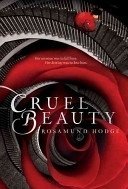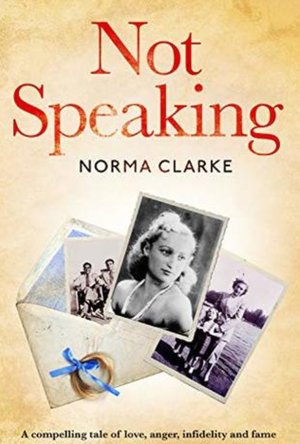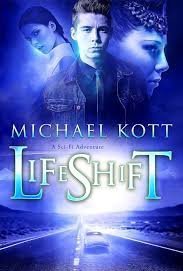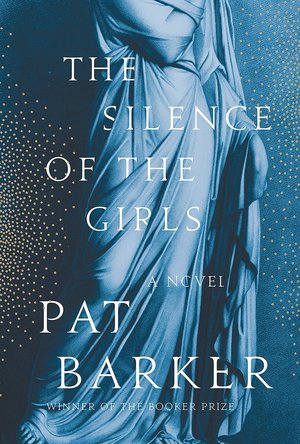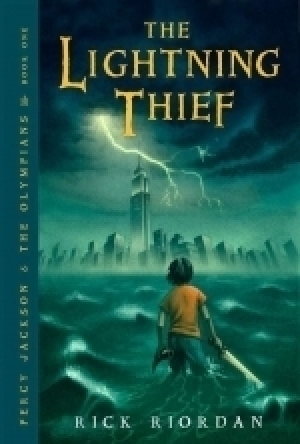Search
Goddess in the Stacks (553 KP) rated Cruel Beauty in Books
Apr 26, 2018
After reading Bright Smoke, Cold Fire I knew I HAD to find more Rosamund Hodge. She has a fantastic flair for taking fairy tales (or Shakespeare!) and twisting them into something darker but more realistic. Cruel Beauty is a twist on Beauty and the Beast, but this is no Stockholm Syndrome-suffering Beauty. She is resentful, and bitter, and angry at her father for subjecting her to this. She has trained her entire life to go to the Beast and destroy him, even if it means destroying herself too. What she find at the castle is nothing like what she expected, though, and neither is she what Hodge's Beast expects. Watching these two bitter, mocking characters dance around each other to get to the bottom of the curse and what actually happened to their world is engrossing and beautiful.
I couldn't put this book down once I started it, and I've already started Crimson Bound (Little Red Riding Hood), the next book in the same world. There's also a novella, Gilded Ashes (Cinderella), that I should snag a copy of.
The world is lovely and evocative, with gods and Forest Lords and Demons who actively participate in the world and grant wishes and make deals. It's a little bit Rumpelstiltskin, a little Fairy Godmother, a little Greek mythology, and all Rosamund Hodge. She's got talent, and writes my favorite micro-genre SO WELL.
If you like dark fairy tales, read this and then everything else Rosamund Hodge has written. It's excellent!
You can find all my reviews at http://goddessinthestacks.wordpress.com
I couldn't put this book down once I started it, and I've already started Crimson Bound (Little Red Riding Hood), the next book in the same world. There's also a novella, Gilded Ashes (Cinderella), that I should snag a copy of.
The world is lovely and evocative, with gods and Forest Lords and Demons who actively participate in the world and grant wishes and make deals. It's a little bit Rumpelstiltskin, a little Fairy Godmother, a little Greek mythology, and all Rosamund Hodge. She's got talent, and writes my favorite micro-genre SO WELL.
If you like dark fairy tales, read this and then everything else Rosamund Hodge has written. It's excellent!
You can find all my reviews at http://goddessinthestacks.wordpress.com
ClareR (6054 KP) rated Not Speaking in Books
Jun 14, 2019
Another great book chosen by The Pigeonhole (seriously, this app is ridiculously addictive). Norma Clarke tells us the story of her family. She grew up in the East End of London, the second eldest of six siblings, in a tiny flat. Her mother and father met in Greece at the end of the Second World War, and Rena came back to England after marrying Bill in Greece, and being able to speak very little English. It must have been really difficult for her.
There’s more to this than a family history though. Norma takes us through some of the social history of East London, Greek mythology (which explains some of her mother’s mindset, I think), and links some of he places she visits to her favourite authors.
It’s just such an interesting book. I wanted to know what happened to all of these people, why they weren’t speaking for one thing! It was truly a delight to read. She writes so descriptively: one minute you can’t believe that her mother can be so blunt and seemingly unfeeling (and therefore I rather disliked her for it), and the next minute, you realise she is as she is, and feel empathy for her. And during all of this, there is the rest of the family. They have their disagreements, yes, but ultimately they are family and they’re always there for one another when they are needed.
I really enjoyed this book. Many thanks to The Pigeonhole, and to Norma Clarke for reading along with us and answering questions.
There’s more to this than a family history though. Norma takes us through some of the social history of East London, Greek mythology (which explains some of her mother’s mindset, I think), and links some of he places she visits to her favourite authors.
It’s just such an interesting book. I wanted to know what happened to all of these people, why they weren’t speaking for one thing! It was truly a delight to read. She writes so descriptively: one minute you can’t believe that her mother can be so blunt and seemingly unfeeling (and therefore I rather disliked her for it), and the next minute, you realise she is as she is, and feel empathy for her. And during all of this, there is the rest of the family. They have their disagreements, yes, but ultimately they are family and they’re always there for one another when they are needed.
I really enjoyed this book. Many thanks to The Pigeonhole, and to Norma Clarke for reading along with us and answering questions.

The Market as God
Book
The Market has deified itself, according to Harvey Cox's brilliant exegesis. And all of the world's...
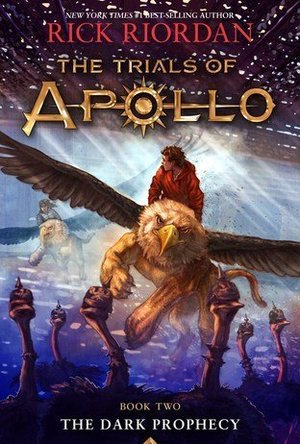
The Dark Prophecy (The Trials of Apollo #2)
Book
Go west. Capture Apollo before he can find the next oracle. If you cannot bring him to me alive,...
Mythology Greek gods adventure
Ivana A. | Diary of Difference (1171 KP) rated LifeShift in Books
Sep 13, 2018
www.diaryofdifference.com
Things can change in a moment. All it takes it that tiny second that can turn our lives upside down. This happened to Alex. See, one day, he is just this unpopular boy that goes to school, and works to earn a little something for himself. Then, in one little moment, he is about to be hit by a train. Only - a miracle happens and he remains alive. But something changed. No, EVERYTHING changed. A new girl comes to school the next morning and tells him he is an Eternal, just like her, a person that lives many lives and keeps getting reborn. He is also supposed to remember his past lives once he turns 18. And not only that, but he also needs to go on a mission to find another Eternal, that would lead them to Zeus.
Bonus: This book is filled with Greek Mythology characters, but they are not the Greek Gods as we know them - they are all Eternals and have a special new fictional story.
I know some of you guys messaged me that the synopsis of the book looked so complicated, and it put you off. The story is actually quite interesting and easy to understand, once you start reading it. So go on, and put this on your TBRs!
The story and the plot itself are so unique - I haven’t read anything like this before. Michael managed to recreate a whole new world, and new type of creatures - Eternals. I loved the idea of the Eternals - people that have many lives and remember their previous lives. They can even choose where they want to get born next, and how to look. I also loved the superpowers they have - communicating through thoughts and dreams, healing, reading the past of a person by touching their hand… However, in many places in the book this was described too fast and too wide - there would be 5 pages of an essay of only description. I would much prefer if we could explore the story and history through the characters more.
The characters were likable. All of them. I liked Alex - he was a typical American boy. Sometimes a bit oblivious to everything happening around him. I found it a bit upsetting how he couldn’t choose who he wanted to be with. But on the other side, I quite admired him for how he coped when his world just changed in an instant, and so many people he knew were not what he thought they were, and on top of that he had to choose who to trust and who not to, and he had to agree to go on a mission that risks his life, even though he still couldn’t remember if he was an Eternal, which meant that maybe he is not like them at all.
Circe was an interesting character too. Such an energetic person with a wild personality - she would be the one that brightens up a room as soon as she walks into it. She can also be very possessive of the people she loves. She quite reminds me of myself in my teenage years in everything she did - funny, reckless moments - all worth remembering. Even though I couldn’t find a favourite character, all the people we meet in the book were equally loved by me.
This is an amazing story - a fiction fantasy that gathered Greek Mythology characters and created something entirely new. I enjoyed it a lot and I can’t wait for the next book of the series to come out. This book opens up a great discussion about people that can be reborn and remember their past. My view on life is that once we die, our soul goes into another body that gets born in the exact same moment, and even though we don’t remember it, we always carry a piece of that inside our hearts. There are occasions though, where some people remember their past lives.
What are your thoughts about life after death? Would you maybe pick this book up?
A special thank you to the author, Michael Kott, who send me a copy of LifeShift in exchange for an honest review. All my thoughts are my own, and completely unbiased.
Things can change in a moment. All it takes it that tiny second that can turn our lives upside down. This happened to Alex. See, one day, he is just this unpopular boy that goes to school, and works to earn a little something for himself. Then, in one little moment, he is about to be hit by a train. Only - a miracle happens and he remains alive. But something changed. No, EVERYTHING changed. A new girl comes to school the next morning and tells him he is an Eternal, just like her, a person that lives many lives and keeps getting reborn. He is also supposed to remember his past lives once he turns 18. And not only that, but he also needs to go on a mission to find another Eternal, that would lead them to Zeus.
Bonus: This book is filled with Greek Mythology characters, but they are not the Greek Gods as we know them - they are all Eternals and have a special new fictional story.
I know some of you guys messaged me that the synopsis of the book looked so complicated, and it put you off. The story is actually quite interesting and easy to understand, once you start reading it. So go on, and put this on your TBRs!
The story and the plot itself are so unique - I haven’t read anything like this before. Michael managed to recreate a whole new world, and new type of creatures - Eternals. I loved the idea of the Eternals - people that have many lives and remember their previous lives. They can even choose where they want to get born next, and how to look. I also loved the superpowers they have - communicating through thoughts and dreams, healing, reading the past of a person by touching their hand… However, in many places in the book this was described too fast and too wide - there would be 5 pages of an essay of only description. I would much prefer if we could explore the story and history through the characters more.
The characters were likable. All of them. I liked Alex - he was a typical American boy. Sometimes a bit oblivious to everything happening around him. I found it a bit upsetting how he couldn’t choose who he wanted to be with. But on the other side, I quite admired him for how he coped when his world just changed in an instant, and so many people he knew were not what he thought they were, and on top of that he had to choose who to trust and who not to, and he had to agree to go on a mission that risks his life, even though he still couldn’t remember if he was an Eternal, which meant that maybe he is not like them at all.
Circe was an interesting character too. Such an energetic person with a wild personality - she would be the one that brightens up a room as soon as she walks into it. She can also be very possessive of the people she loves. She quite reminds me of myself in my teenage years in everything she did - funny, reckless moments - all worth remembering. Even though I couldn’t find a favourite character, all the people we meet in the book were equally loved by me.
This is an amazing story - a fiction fantasy that gathered Greek Mythology characters and created something entirely new. I enjoyed it a lot and I can’t wait for the next book of the series to come out. This book opens up a great discussion about people that can be reborn and remember their past. My view on life is that once we die, our soul goes into another body that gets born in the exact same moment, and even though we don’t remember it, we always carry a piece of that inside our hearts. There are occasions though, where some people remember their past lives.
What are your thoughts about life after death? Would you maybe pick this book up?
A special thank you to the author, Michael Kott, who send me a copy of LifeShift in exchange for an honest review. All my thoughts are my own, and completely unbiased.
Sensitivemuse (246 KP) rated The Silence of the Girls in Books
Apr 17, 2019
Good Retelling of The Iliad
This is a retelling of The Iliad - no need to read it however a bit of the basics of it would help you understand this book more, just for background information.
It can be a rather difficult read. Not to say it’s hard to understand, but more of the detailed subject matter. It’s shocking to read when these women are going through an era where war is prevalent, and the best outcome for them is to be a trophy, instead of a slave. (Although, those two terms are pretty much the same thing if you think about it) It’s scary, and eye opening at the same time. These women go through a lot of trauma and Briseis has it slightly better than the other women out there (which says a lot). They’re pretty much treated like cattle and nothing could be done with it. Unfortunately this is the norm during war.
The relationship between Briseis and Achilles was interesting. Despite the conqueror and war trophy titles, it develops and evolves as Achilles goes though life changing events through the novel. You do however, have a heart for Patroclus. He seemed more human and his friendship with Briseis is what might have kept her going through all this time in the book. In a sense too, she also benefited from being with Achilles (albeit, not her choice)
This is definitely word a read through if you’re interested in Greek Mythology and retellings this is worth the read, despite the slow but steady pace. The retelling of the Iliad from Briseis’ point of view is a good one.
It can be a rather difficult read. Not to say it’s hard to understand, but more of the detailed subject matter. It’s shocking to read when these women are going through an era where war is prevalent, and the best outcome for them is to be a trophy, instead of a slave. (Although, those two terms are pretty much the same thing if you think about it) It’s scary, and eye opening at the same time. These women go through a lot of trauma and Briseis has it slightly better than the other women out there (which says a lot). They’re pretty much treated like cattle and nothing could be done with it. Unfortunately this is the norm during war.
The relationship between Briseis and Achilles was interesting. Despite the conqueror and war trophy titles, it develops and evolves as Achilles goes though life changing events through the novel. You do however, have a heart for Patroclus. He seemed more human and his friendship with Briseis is what might have kept her going through all this time in the book. In a sense too, she also benefited from being with Achilles (albeit, not her choice)
This is definitely word a read through if you’re interested in Greek Mythology and retellings this is worth the read, despite the slow but steady pace. The retelling of the Iliad from Briseis’ point of view is a good one.
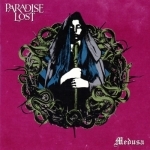
Medusa by Paradise Lost
Album Watch
Most people will know Medusa as the Gorgon from Greek mythology; she is the infamous beast with...
metal
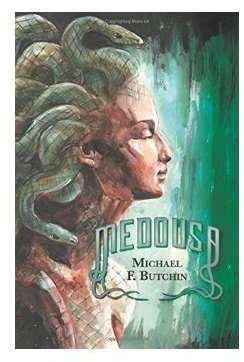
Medousa
Book
Classic Greek mythology paints Medousa as one of the most loathsome creatures of the ancient world....
Rachel King (13 KP) rated The Lightning Thief in Books
Feb 11, 2019
I decided to read this partly because I had just seen the movie and partly because I heard that it was a good series for fans of the Harry Potter series. Well, in regards to the movie, it's appalling how much the producers changed the book's plot to make the movie. If they make a second movie, I likely will not be interested, as I much more prefer the book's plot. In regards to the book's similarities to Harry Potter, they are vast, but really, who wouldn't aim to write something as popular and complex as the Harry Potter series? J.K. Rowling owns a castle! So, on to the actual book.
Years ago I thought that writing a fantasy series that uses Greek mythology would be a great idea, so I was excited when I heard of the Percy Jackson series. I love the modernized spin on the various good and bad characters, bringing them to life in both creative and believeable ways, such as Ares on a Harley and "Mr." Charon wearing Italian suits. The "Gods" of mythology at times seemed more like immature teenagers or work-aholic parents, with as much flaws as any normal human, and I really appreciated that they were differentiated from The GOD early on, and their place in the known universe was explained in the context of Percy's world. I especially like the scene of Hephaestus' trap that Percy and Annabeth get caught in. How the "normal" humans explained away the activities of the mythological characters was probably the most creative of the whole text, and at times rather humorous. It actually makes me wonder how much of what I see everyday is only a cover for what is really happening in the spiritual realm.
The only element that really bugged me about the text was how Percy changed from this moody, victimized pre-teen to a rather mature young man with almost no transition - emotional or otherwise. It almost felt like Percy possessed two different personalities that shared the same body. While Percy often says that he did not want to be the son of Poseidon, I found evidence of inner termoil strangely absent throughout the text. I also felt that there were smaller issues that could have been more detailed and developed, such as the characters of Grover and Annabeth. I will be continuing the series with The Sea of Monsters (Percy Jackson and the Olympians, Book 2) in the near future.
Years ago I thought that writing a fantasy series that uses Greek mythology would be a great idea, so I was excited when I heard of the Percy Jackson series. I love the modernized spin on the various good and bad characters, bringing them to life in both creative and believeable ways, such as Ares on a Harley and "Mr." Charon wearing Italian suits. The "Gods" of mythology at times seemed more like immature teenagers or work-aholic parents, with as much flaws as any normal human, and I really appreciated that they were differentiated from The GOD early on, and their place in the known universe was explained in the context of Percy's world. I especially like the scene of Hephaestus' trap that Percy and Annabeth get caught in. How the "normal" humans explained away the activities of the mythological characters was probably the most creative of the whole text, and at times rather humorous. It actually makes me wonder how much of what I see everyday is only a cover for what is really happening in the spiritual realm.
The only element that really bugged me about the text was how Percy changed from this moody, victimized pre-teen to a rather mature young man with almost no transition - emotional or otherwise. It almost felt like Percy possessed two different personalities that shared the same body. While Percy often says that he did not want to be the son of Poseidon, I found evidence of inner termoil strangely absent throughout the text. I also felt that there were smaller issues that could have been more detailed and developed, such as the characters of Grover and Annabeth. I will be continuing the series with The Sea of Monsters (Percy Jackson and the Olympians, Book 2) in the near future.
Sophia (Bookwyrming Thoughts) (530 KP) rated Such Sweet Sorrow in Books
Jan 23, 2020
<b><i>I received this book for free from Publisher in exchange for an honest review. This does not affect my opinion of the book or the content of my review.</i></b><i>Such Sweet Sorrow</i> is quite literally an unwritten sequel to <i>Romeo and Juliet</i> coinciding with <i>Hamlet</i> with a dark twist, or in other words, a bridge between the end of one Shakespeare play and the beginning of another.
I personally liked Trouts version of Romeo as he journeys to Denmark in the quest to save Juliet from death - he's much more spunky, but he has his romantic elements as well that Shakespeare originally placed in him. Hamlet is just as cheeky as his original counterpart, if not more cheeky (<i>Hamlet</i> is my favorite Shakespeare play, and it's not actually because of the ending). Juliet, like Romeo, also has another side to her Trout creates - she's more badass. (<i>Romeo and Juliet</i> is my least favorite - interesting combo going on here honestly.)
But <i>Such Sweet Sorrow</i> can be overwhelming. Trout doesn't just have <i>Hamlet</i> mashed with <i>Romeo and Juliet</i> - she's got Norse mythology and Greek mythology and who knows what else (some reviewers on Goodreads say anything you can think of... Essentially). Regardless, there is definitely a mess of things going on throughout and I just decided to go with it rather than question the book in its entirety (like what other mythological aspects are involved).
For the first half of the book, Romeo and Hamlet are, for the most part, wandering around cluelessly through this place called the Afterjord - it can get boring pretty quickly, but there is so much going on with the creatures they come across, it's not actually boring (I'm too busy trying to keep track of what's going on so I'm not lost). <i>Such Sweet Sorrow </i>doesn't actually pick up until after Romeo and Hamlet finally rescue Juliet and try to make their way back to the mortal world.
But while there is so much going on throughout, I actually liked this strange little book in all its weird complexities. However...
I'm disappointed that a cliffhanger is involved and nowhere on Goodreads does it say <i>Such Sweet Sorrow</i> has a sequel in the works.
<a href="https://bookwyrmingthoughts.com/arc-review-such-sweet-sorrow-by-jenny-trou/"; target="_blank">This review was originally posted on Bookwyrming Thoughts</a>
I personally liked Trouts version of Romeo as he journeys to Denmark in the quest to save Juliet from death - he's much more spunky, but he has his romantic elements as well that Shakespeare originally placed in him. Hamlet is just as cheeky as his original counterpart, if not more cheeky (<i>Hamlet</i> is my favorite Shakespeare play, and it's not actually because of the ending). Juliet, like Romeo, also has another side to her Trout creates - she's more badass. (<i>Romeo and Juliet</i> is my least favorite - interesting combo going on here honestly.)
But <i>Such Sweet Sorrow</i> can be overwhelming. Trout doesn't just have <i>Hamlet</i> mashed with <i>Romeo and Juliet</i> - she's got Norse mythology and Greek mythology and who knows what else (some reviewers on Goodreads say anything you can think of... Essentially). Regardless, there is definitely a mess of things going on throughout and I just decided to go with it rather than question the book in its entirety (like what other mythological aspects are involved).
For the first half of the book, Romeo and Hamlet are, for the most part, wandering around cluelessly through this place called the Afterjord - it can get boring pretty quickly, but there is so much going on with the creatures they come across, it's not actually boring (I'm too busy trying to keep track of what's going on so I'm not lost). <i>Such Sweet Sorrow </i>doesn't actually pick up until after Romeo and Hamlet finally rescue Juliet and try to make their way back to the mortal world.
But while there is so much going on throughout, I actually liked this strange little book in all its weird complexities. However...
I'm disappointed that a cliffhanger is involved and nowhere on Goodreads does it say <i>Such Sweet Sorrow</i> has a sequel in the works.
<a href="https://bookwyrmingthoughts.com/arc-review-such-sweet-sorrow-by-jenny-trou/"; target="_blank">This review was originally posted on Bookwyrming Thoughts</a>
